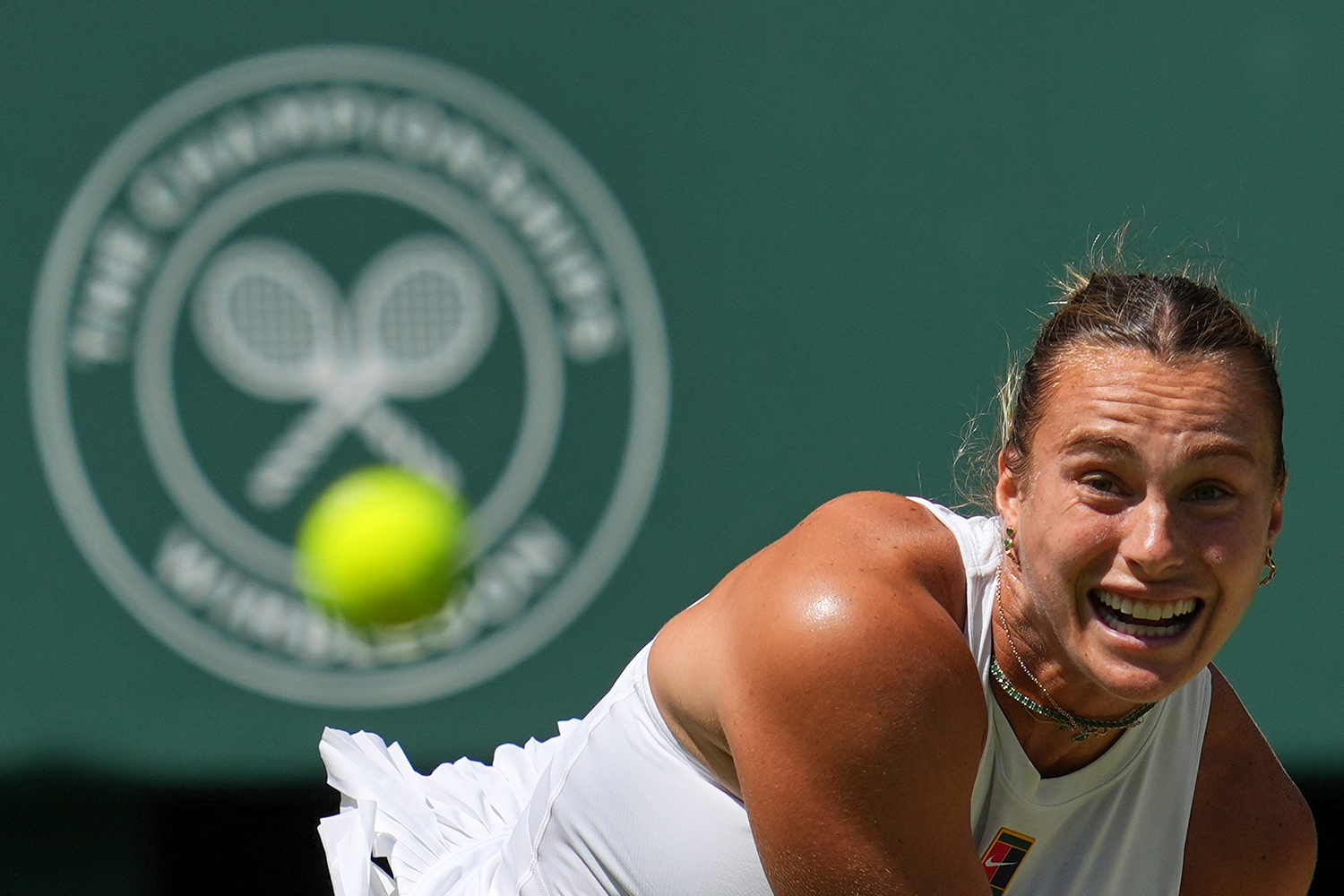The angst that floods a beaten player this late in the Wimbledon fortnight is personal, certainly, but also deeply financial. Losing in a semi-final costs you a fortune.
The men and women who fell away at the last-four stage took home £775,000, almost enough, in London, to buy a bedsit. But reaching the final would have earned them £1.52 million as runner-up or £3m as champion – a loss of £745,000 or £2.25m respectively.
Honour and glory are all, but elite athletes wouldn’t be human if they traipsed off Centre Court not thinking – that defeat just cost me three-quarters of a million quid. Aryna Sabalenka and Belinda Bencic grappled with that realisation on Thursday before the pain spread to the men’s semi-finals.
Ever expanding wages and prize-money pots are a feature of all the big summer sports now entertaining us. Even a first-round Wimbledon exit is worth £66,000. Total prize-money in the men’s and women’s singles rose 8.2% to 38.8m (or £53.5m across all the categories).
Wimbledon’s largesse has doubled in 10 years. Why? 1. Because the All England Club posted £407m in turnover last year and a £54m profit, nearly £50m of which went back into British tennis. And 2. As a consequence of constant pressure from the top players for a bigger share of Grand Slam tournament loot.
Yes, these people mean business. The Professional Tennis Players’ Association have begun legal action against the governing bodies in protest at the 11-month schedule and division of wealth. They allege “systemic abuse, anti-competitive practices and a blatant disregard for player welfare.”
To the performers, it’s a fight for justice. To outsiders, it looks more like an insane inflationary spiral. A sportswriter’s inbox these days is crammed with announcements about record prize-money for this or that event.
Automatic increases are now built into the wages arms race. The two Wimbledon singles champions this weekend will earn £300,000 more than last year’s winners.
Next year even the World Darts Championship will pay its winner £1m, from a pot topped up by £7m.
Across London, at the England-India Lord’s Test, the home side’s players are working from central contracts worth up to £900,000 for international duty. The England and Wales Cricket Board’s deals range from £130,000 to £800,000. Then there are match fees on top.
Newsletters
Choose the newsletters you want to receive
View more
For information about how The Observer protects your data, read our Privacy Policy
Next week at Royal Portrush in Northern Ireland, the winner of the Open Championship will land more than the £2.3m collected by last year’s Open champion, Xander Shauffele. ‘More,’ because an increase is inevitable, when the Royal & Ancient Club reveals the pool next week.
Football’s hyper-inflation has surpassed the public’s ability to properly take it in. According to Forbes, Cristiano Ronaldo made £218m on and off the pitch last year. At the Club World Cup in America, Fifa has sprayed a billion dollars at competing teams as part of its quest to become a global conglomerate and pseudo nation state.
Back at Wimbledon, two champions will each drive away from the All England Club with £3m – the product not of a fortnight’s work, of course, but a lifetime’s dedication.
The BBC’s viewing figures will say the Championships are one of the biggest shows of the year, and can justify their generosity by citing entertainment industry metrics.
And tennis is anything but embarrassed. Career prize-money is one of its favourite stats. Carlos Alcaraz, one of Sunday’s finalists, has reached £33.5m so far, with way more to come.
Photograph by AP Photo/Kin Cheung

